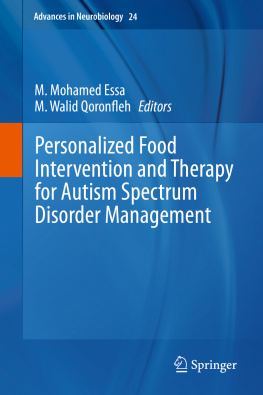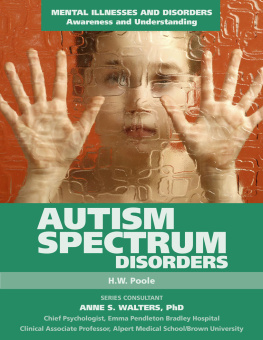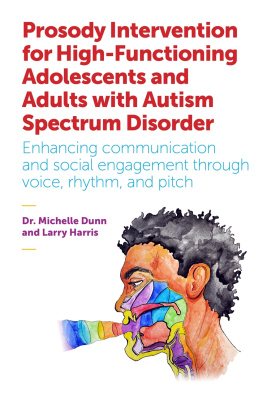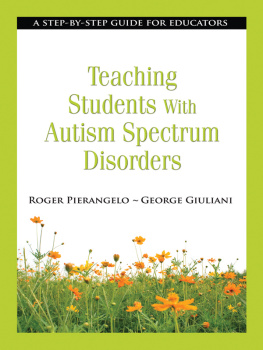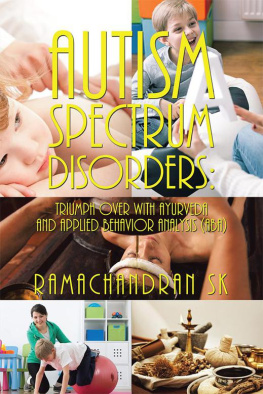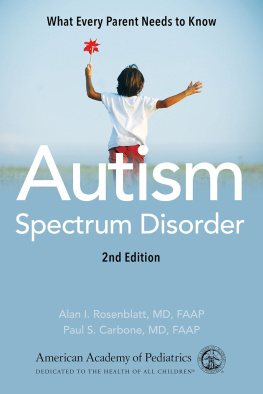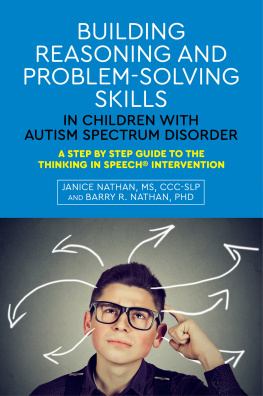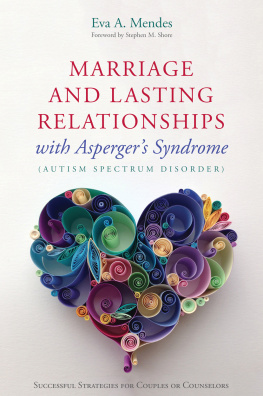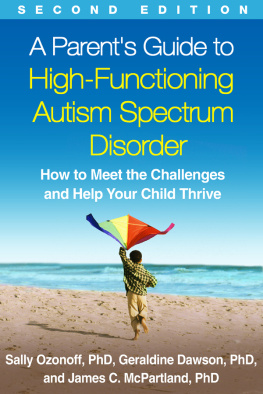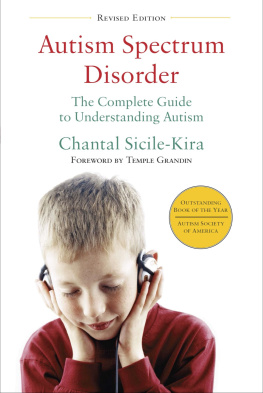M. Mohamed Essa - Personalized Food Intervention and Therapy for Autism Spectrum Disorder Management
Here you can read online M. Mohamed Essa - Personalized Food Intervention and Therapy for Autism Spectrum Disorder Management full text of the book (entire story) in english for free. Download pdf and epub, get meaning, cover and reviews about this ebook. year: 2020, publisher: Springer International Publishing, genre: Home and family. Description of the work, (preface) as well as reviews are available. Best literature library LitArk.com created for fans of good reading and offers a wide selection of genres:
Romance novel
Science fiction
Adventure
Detective
Science
History
Home and family
Prose
Art
Politics
Computer
Non-fiction
Religion
Business
Children
Humor
Choose a favorite category and find really read worthwhile books. Enjoy immersion in the world of imagination, feel the emotions of the characters or learn something new for yourself, make an fascinating discovery.
- Book:Personalized Food Intervention and Therapy for Autism Spectrum Disorder Management
- Author:
- Publisher:Springer International Publishing
- Genre:
- Year:2020
- Rating:5 / 5
- Favourites:Add to favourites
- Your mark:
- 100
- 1
- 2
- 3
- 4
- 5
Personalized Food Intervention and Therapy for Autism Spectrum Disorder Management: summary, description and annotation
We offer to read an annotation, description, summary or preface (depends on what the author of the book "Personalized Food Intervention and Therapy for Autism Spectrum Disorder Management" wrote himself). If you haven't found the necessary information about the book — write in the comments, we will try to find it.
M. Mohamed Essa: author's other books
Who wrote Personalized Food Intervention and Therapy for Autism Spectrum Disorder Management? Find out the surname, the name of the author of the book and a list of all author's works by series.
Personalized Food Intervention and Therapy for Autism Spectrum Disorder Management — read online for free the complete book (whole text) full work
Below is the text of the book, divided by pages. System saving the place of the last page read, allows you to conveniently read the book "Personalized Food Intervention and Therapy for Autism Spectrum Disorder Management" online for free, without having to search again every time where you left off. Put a bookmark, and you can go to the page where you finished reading at any time.
Font size:
Interval:
Bookmark:
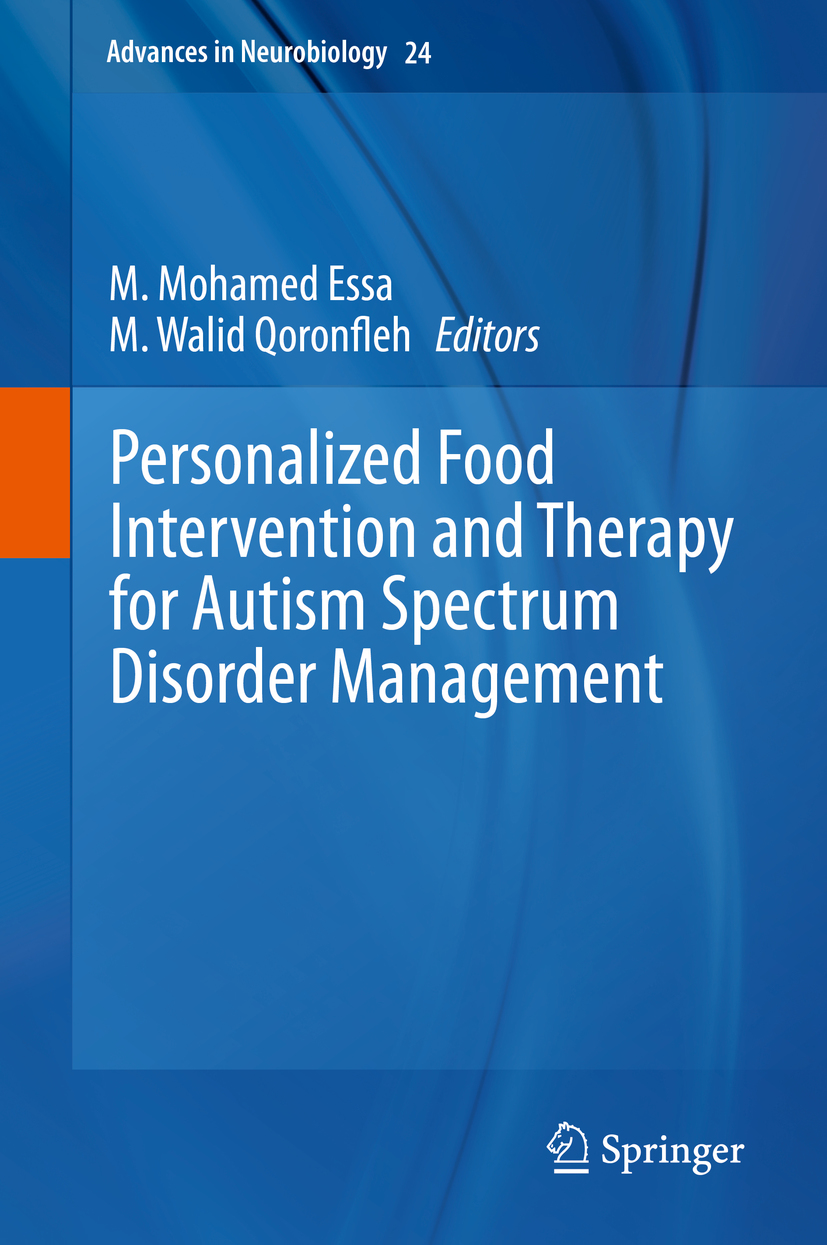
More information about this series at http://www.springer.com/series/8787

This Springer imprint is published by the registered company Springer Nature Switzerland AG
The registered company address is: Gewerbestrasse 11, 6330 Cham, Switzerland
It is a great pleasure to write a foreword for the bookPersonalized Food Intervention and Therapy for Autism Spectrum Disorder Managementedited by Drs. Mohamed Essa and M. Walid Qoronfleh, who have gained extensive experience in their respective scientific fields, including natural compounds and their potential beneficial effects on brain diseases and human health. It is highly commendable for these two scientists to author this book at this time when people are looking for something that would give them a good perspective on autism and the impact of food natural products on this disease spectrum.
Nowadays, there is great interest in investigations of food ingredients for their potential health benefits among the people suffering from autism spectrum disorder (ASD). We frequently fail to recognize the real benefit of traditional medicines and food natural ingredients despite the fact that they have been used for many centuries and are still being used widely in all cultures across the globe. This book provides a compelling perspective on the potential benefits of many edible items, including natural compounds, herbs, vegetables, fruits, grains, seeds, and nuts, for which substantial evidence now exist in the literature of their effectiveness against ASD. The individual chapters that are covered and written by experienced authors in their fields provide an additional value to the reader. The chapters are organized under three parts, covering the following: (1) Autism Spectrum Disorder from Background to Interplay of Genetic, Epigenetic, Environmental Risk Factors and Nutraceuticals, (2) Specific Foods and Nutrient Qualities in Autism, and (3) Food and Dietary Intervention and Therapy in Autism. This organization provides the reader a better basic understanding of pharmacological constituents, including their potential benefits against ASD.
Why this book is timely? Firstly, a greater proportion of the population in most developing and developed countries have become open-minded for the use of food ingredients and traditional medicines in spite of the use of allopathic medicines for treatment of diseases. Secondly, there is a huge increase in the prevalence of ASD globally, and until now, there are no proper medications to deal with symptoms or effectively manage comorbidities, behavior, performance, and food intolerances. Thirdly, misunderstanding and confusion exist among the parents of an ASD individual and their caregivers, and this book provides up-to-date clarification to the public.
Another notable factor in this book is that several chapters provide a better understanding of the mechanisms of the effects of various phytochemical constituents, such as sulforaphane, curcumin polyphenols (resveratrol), and flavonoids (luteolin). For instance, there is now an extensive literature on omega-3 fatty acids from nuts, showing they function as precursors for anti-inflammatory agents such as neuroprotectin D1 and resolvins, which might exert significant benefits on many neurological disorders including ASD.
In conclusion, I appreciate the efforts of the editors to publish this book, which is a great resource of composite information on food and autism. It should also be a good resource for parents with ASD children, dieticians, nutritionists, nutrition researchers, and other readers with interests in human health.
I was delighted when I received a request from Dr. M. Walid Qoronfleh to write a brief foreword for his book. I have known Dr. Qoronfleh for many years, and I have been impressed by his accomplishments in the biomedical field. During the last decade, Dr. Qoronfleh and I were among the team of Arab Expatiate Scientists (AES) who worked with Qatar Foundation to help in promoting Qatar research culture. In the process, we embarked on several new research initiatives in several important research areas. In the biomedical area, we also worked together on putting together and writing the planning document that was used to establish Qatar Biomedical Research Institute (QBRI), where significant biomedical research is currently being conducted today.
As a drug discovery researcher for over three decades in the pharmaceutical industry and academia, my research teams have always explored innovative approaches for design and synthesis of novel therapeutics for treatment of many diseases including central nervous system (CNS) disorders. We successfully discovered ten marketed drugs. Examples of CNS disorder drugs include the antidepressants Effexorand Pristiq, the sedative Sonata, and the analgesic Dezocine. While pursuing our drug discovery research, we were conscious of the importance of natural products therapeutic potential as well as the role of nutrition in preventing and ameliorating disease symptoms. Our efforts led to the discovery of natural products drugs like Mylotargand Toresil.
I am pleased to provide a foreword toPersonalized Food Intervention and Therapy for Autism Spectrum Disorder Management
Font size:
Interval:
Bookmark:
Similar books «Personalized Food Intervention and Therapy for Autism Spectrum Disorder Management»
Look at similar books to Personalized Food Intervention and Therapy for Autism Spectrum Disorder Management. We have selected literature similar in name and meaning in the hope of providing readers with more options to find new, interesting, not yet read works.
Discussion, reviews of the book Personalized Food Intervention and Therapy for Autism Spectrum Disorder Management and just readers' own opinions. Leave your comments, write what you think about the work, its meaning or the main characters. Specify what exactly you liked and what you didn't like, and why you think so.

